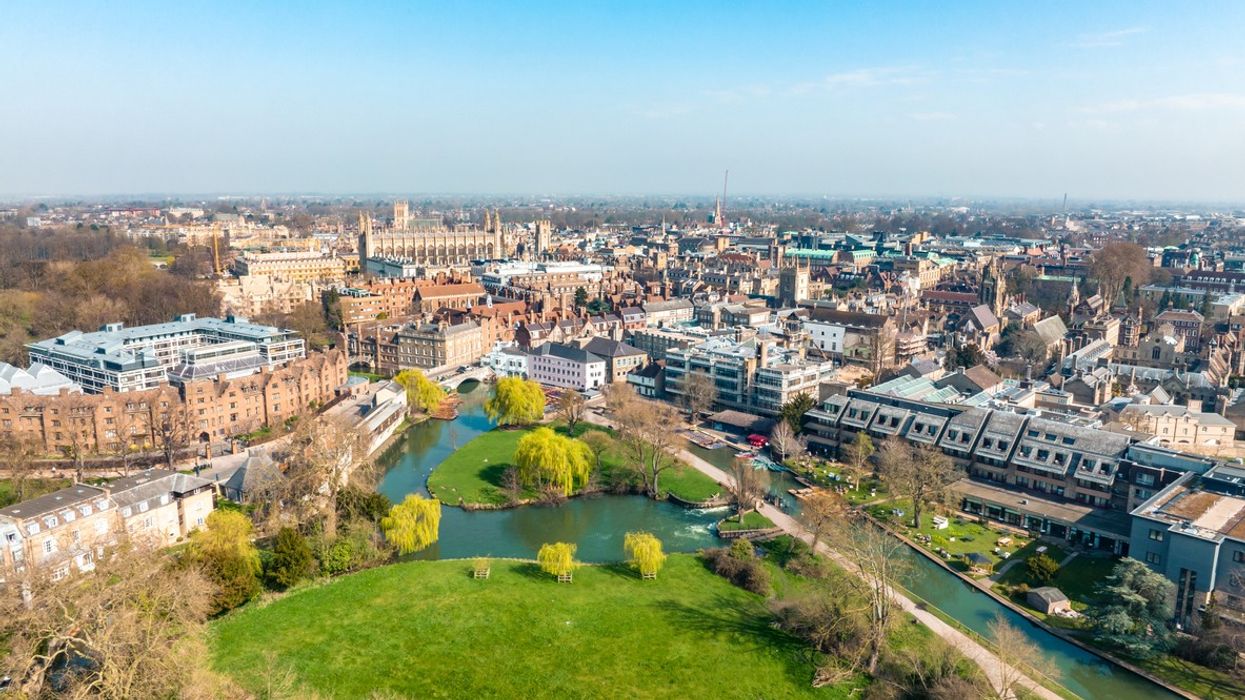CAMBRIDGE does not need to become Britain’s Silicon Valley to be successful – as more talent from south Asia are being attracted to the city, according to experts.
They highlighted Indian-origin entrepreneurs – such as Dr Sai Shivareddy, founder of battery firm Nyobolt – who are at the forefront of the city’s technology industry.
The UK government is keen to turn Cambridge into Europe’s version of tech hub Silicon Valley, with up to 250,000 new homes built over the next two decades and the prospect of billions of pounds of investment in the science and tech sectors.
Housing secretary Michael Gove pledged in November to prioritise water supply issues so that homes can be built in and around the city in Cambridgeshire by 2040.
Jaideep Prabhu, professor of marketing and director of the Centre for India & Global Business at Cambridge Judge Business School, said the city has been very successful in how much venture capital and investment it attracts, along with the high returns it produces.
He told Eastern Eye: “It’s up there with Silicon Valley and Massachusetts.
“Silicon Valley has space and scale for manufacturing; they create very large companies with a large number of people and build computers. Cambridge has a smaller footprint, they don’t make things, they make intellectual property.
“Intellectual property has huge merit, its more agile than manufacturing.”
Prabhu added: “Nyobolt is a game changer in the battery space. In the previous wave, pharmaceutical firms from India had a [presence].
“Now Indian students are studying here, who then set up startups.
“Britain used to be the number one destination for south Asians, which was displaced by the US offering scholarships.
“That has changed again. The university has been very supportive of setting up businesses for a new generation in science and tech. Cambridge is a global phenomenon, don’t mess it up – it has a world beating university and it is like a village, you could meet 10 people who could each introduce you to another 10 people to help you with your plan.”

Silicon Valley in California is home to many start-up and global technology giants – including Apple; Meta, led by Mark Zuckerberg and Google, whose CEO is Sundar Pichai.
Cambridge has already been labelled “Silicon Fen” after many businesses decided to move to the city in the late 1990s. They include Indian pharmaceutical firm Dr Reddy’s Laboratories, set up base at Cambridge Science Park in 2011.
In 2021, Cambridge-based science firm Eagle Genomics announced the opening of its operation in Hyderabad, south India.
In November, King’s College at Cambridge University announced Pallavi Goel as among this year’s Entrepreneur-in-Residence MPhil students. Goel, who was born in India, is studying industrial systems, manufacture and management.
Jaffer A Kapasi, who runs an accountancy and business advisory company in Leicestershire, told Eastern Eye: “The reasons why Asian-origin entrepreneurs are ahead is that the Indian government launched the Startup India initiative to support entrepreneurs and build a robust startup environment.
“Another high-profile programme, Make in India, was designed by the government to promote self-reliance, foster innovation, enhance skill development and build a best-in-class manufacturing infrastructure.
“Finally, Digital India is a government project that aims to digitally empower the society and double the size of India’s digital economy.
“Cambridge as a Silicon Valley will shine the most. Technology is our fastest growing and most successful sector, creating wealth and employment across the country.
“Having a technology sector which reflects the society that we live in is key in attracting the new generation of entrepreneurs and talent that will continue to build our reputation and wealth in this space.”
The plan to grow interest in Cambridge from India-based companies looking to expand into the UK was discussed by the Department for International Trade’s head of investment for south India on a visit to the UK city in 2022.
Siddharth Vishwanathan, the department of trade’s head of investment for South India, discussed the rise in demand with Rosa Del Campo, head of Inward Investment at Locate Cambridge.
Dr Shivareddy, who founded Nyobolt in 2019, said: “We are one of the fastest growing battery companies in the world.
“We have been backed by venture capital and also the ecosystem around Cambridge – like the university and the tech transfer offices, as well as funding organisations – both public and private - so it’s been a great journey, so far. We need all that talent of engineering, talent that covers materials, manufacturing.”
He added: “It is a big challenge to attract more people here because of the lack of housing and the infrastructure of a very small university town. But we have done very well to this point and I believe it’s going to get better”.




